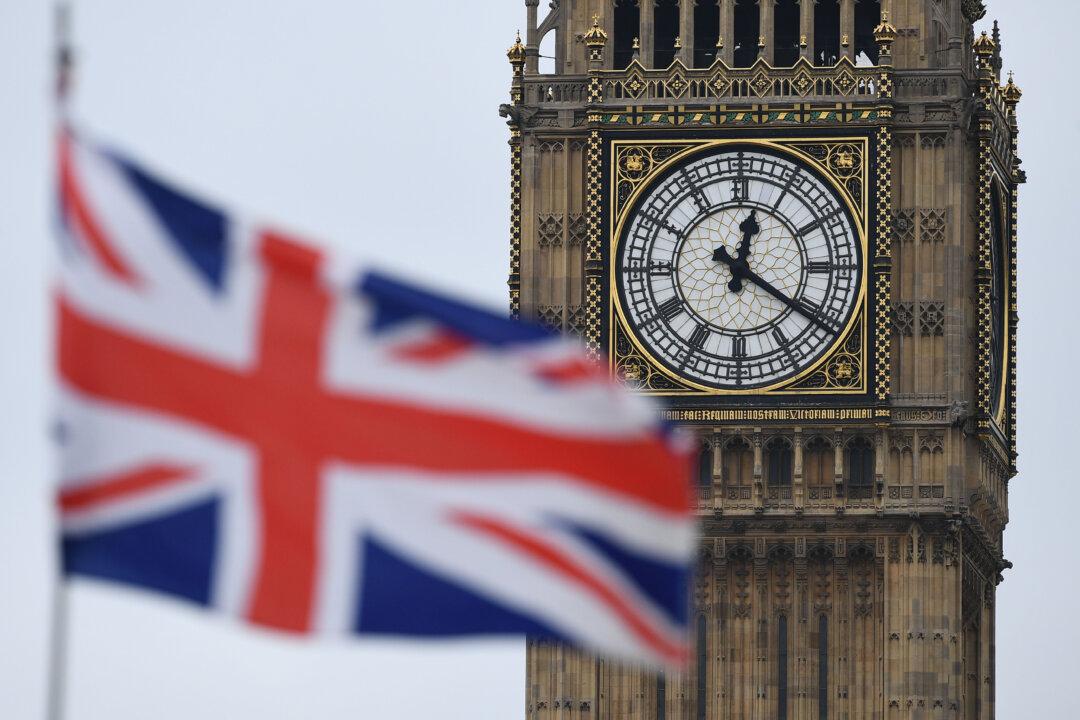A number of Conservative MPs have criticised the government for quietly bolstering equality protections with European Union standards, which they claim could burden businesses.
The Equality Act 2010 (Amendment) Regulations 2023 was passed by MPs on Dec. 13, 2023, and aimed to reproduce in domestic law in Great Britain certain interpretive effects of EU law which would have ceased to apply by the end of 2023.
The government said this was done “to ensure necessary equality protections are put into statute” and that “the law will continue to have the same effect after the end of 2023 as it did before.”
Aspects of the Equality Act, which came into effect on Jan. 1, 2024, include instruments which allow people to sue for “indirect discrimination” if they have experienced the “same disadvantage” as someone with a protected characteristic, such as race or religion, even if they are not part of those protected groups.
Another allows for companies to be sued for making “discriminatory public statements,” even if outside of the recruitment process.
‘Simply Weird’ to Be Implementing ECJ Judgments
Leading Brexiteers Sir Bill Cash, Sir John Hayes, and Sir Jacob Rees-Mogg had refused to vote for the legislation, with Sir Jacob telling The Telegraph on Saturday that voters would find it “simply weird” to implement EU court rulings after the UK had long since left the bloc.He told the newspaper: “Not only people who voted for Brexit, but people who didn’t, would think that implementing ECJ judgments in any form is simply weird. We have left the EU.”
“I cannot understand why the government wishes to put more burdens on businesses and add to the Equality Act’s damage to our economic vibrancy,” he added.
Sir John, who voted against the amendments to the Equality Act, said: “It’s not good enough for a Conservative government to let the ratchet move further on. The vote for Brexit was in some sense a cry for help from the law-abiding, patriotic, hard-working majority. They are desperate for more conservatism, not less.”
Sir Bill, who likewise voted against the measures, added: “This was done, in my opinion, by virtue of extremely bad advice. Nobody seems to have quite grasped how important these issues are.”
Suing for Indirect Discrimination
The government’s statutory guidance explains that in relation to “indirect discrimination: same disadvantage,” the regulation “reproduces interpretive effects of retained EU law to enable claimants without a relevant protected characteristic who suffer from a disadvantage together with persons with the protected characteristic as a result of a discriminatory [provision, criterion, or practice] to continue to bring a claim.”The guidance says that in doing so “the regulation resolves ambiguities, removes doubts and anomalies and facilitates improvement in the clarity and accessibility of the law.”
Amendments to the 2010 act add a new section specifying that “discriminatory public statements” that “signal the intention to directly discriminate against people” with a protected characteristic from employment “may amount to unlawful conduct if there is no active recruitment.”
Legislation ‘Essential’ for Ensuring Existing Rights Are Enshrined in Law
A government spokesman told The Telegraph that the legislation was “essential” for ensuring that “existing key rights and principles such as equal pay and protections for breastfeeding women were enshrined in law.”The spokesman continued: “We are not re-stating EU law where it is not needed. This legislation applies only to directly discriminatory statements relating to recruitment decisions. Individuals will continue to be free to express their personal beliefs as they are at present.
“However, we have noted a number of concerns from MPs and are giving these careful consideration. We have not ruled out the possibility of making further amendments to legislation.”







